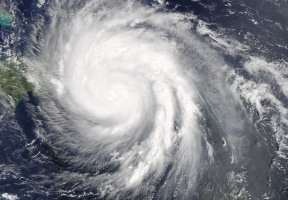Courtesy of Congressman Danny Davis
Edited by Lawndale Bilingual News
 Something absolutely can be done to repair the devastation caused by repeated hurricanes to the Puerto Rican community. There is a bill in Congress in Congress, HR 3339, to create a $5 trillion National Infrastructure Bank, which would be able to address all of Puerto Rico’s many emergency infrastructure needs, immediately. It’s now been five years since Hurricane Maria struck the island, killed thousands of residents, and destroyed homes and infrastructure, with little progress in mitigation repairs. Now, Fiona—a category 1 storm delivering a year’s worth of rain in a day – has knocked out power, flooded homes, and shattered newly paved roads. Worse still, electricity service has not improved since a private company took over management of the grid in 2021. Frequent outages and high electricity fees were the norm, even before Fiona arrived.
Something absolutely can be done to repair the devastation caused by repeated hurricanes to the Puerto Rican community. There is a bill in Congress in Congress, HR 3339, to create a $5 trillion National Infrastructure Bank, which would be able to address all of Puerto Rico’s many emergency infrastructure needs, immediately. It’s now been five years since Hurricane Maria struck the island, killed thousands of residents, and destroyed homes and infrastructure, with little progress in mitigation repairs. Now, Fiona—a category 1 storm delivering a year’s worth of rain in a day – has knocked out power, flooded homes, and shattered newly paved roads. Worse still, electricity service has not improved since a private company took over management of the grid in 2021. Frequent outages and high electricity fees were the norm, even before Fiona arrived.
No current government program appears up to the task of correcting Puerto Rico’s electricity and other infrastructure problems. The Bipartisan Infrastructure Law passed in Congress last year will provide the territory with only $2.3 billion for infrastructure repairs. That’s far below the American Society of Civil Engineers’ 2019 Report Card, which estimated a need of $13-23 billion over 10 years – to update infrastructure and support economic growth and competitiveness. HR3339, which is getting growing support in and out of Congress, would create a $5 trillion National Infrastructure Bank, or NIB, to finance projects that federal, state and local governments cannot afford. Puerto Rico would receive $48 billion over 10 years to cover all of the territory’s backlog in infrastructure improvements, including for roads (100% of which are in poor condition), bridges (13% are structurally deficient), drinking and wastewater systems ($3.3 billion needed over 10 years), levees and dams (that overflowed from Fiona’s destruction), affordable housing, public transportation, and more.
We are asking Congress to pass HR3339 now. Support for this legislation is growing in Congress and among grassroots organizations. Endorsements include the National Black Caucus of State Legislators, Council of State Governments East Region and National Latino Farmers and Ranchers Trade Association. Twenty-four state legislatures have introduced support resolutions to Congress, and eight have passed at least one house.








